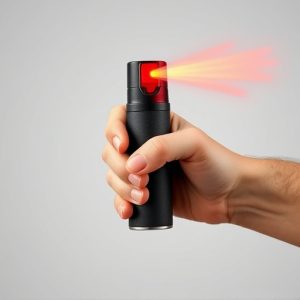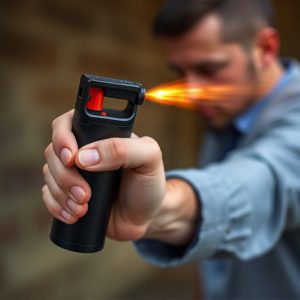Pepper Spray Laws by State: Understanding Civilian Protection Benefits and Safety
Pepper Spray Laws by State vary widely across the US, reflecting differing stances on self-defense a…….
Pepper Spray Laws by State vary widely across the US, reflecting differing stances on self-defense and public safety. While some states like California require permits for purchase, others like Texas have no restrictions. Understanding these laws is crucial for citizens seeking to protect themselves legally and ethically using pepper spray, a powerful self-defense tool that temporarily disables attackers but requires proper training, precautions, and knowledge of local regulations.
“Uncovering the power of pepper spray as a tool for civilian protection has never been more crucial. With varying legal landscapes across states, understanding its composition, effects, and regulatory framework is essential for responsible usage. This comprehensive guide delves into the world of pepper spray laws by state, exploring its benefits, considerations, and safety precautions for civilians seeking self-defense solutions. By the end, readers will be equipped with knowledge to navigate their rights and make informed decisions.”
- Understanding Pepper Spray: Its Composition and Effects
- Pepper Spray Laws by State: A Comprehensive Overview
- Civilian Protection Use: Benefits, Considerations, and Safety Precautions
Understanding Pepper Spray: Its Composition and Effects
Pepper spray, a popular civilian protection tool, is a chemical agent designed to temporarily disable an attacker. Its primary active ingredient is capsaicin, the same compound that gives chili peppers their heat. This compound irritates the eyes, nose, and respiratory system, causing temporary blindness, coughing, and difficulty breathing. The effects usually subside within 15-30 minutes but can be extremely debilitating during that time.
Understanding pepper spray’s composition and effects is crucial in navigating Pepper Spray Laws by State. These laws vary significantly, determining who can possess and carry pepper spray, where it can be used, and how it can be stored. Knowing these regulations is essential for ensuring both personal safety and legal compliance.
Pepper Spray Laws by State: A Comprehensive Overview
In the United States, pepper spray laws vary significantly from state to state, reflecting differing perspectives on self-defense and public safety. Some states have comprehensive regulations that strictly control the sale and possession of pepper spray, while others have more lenient rules allowing for wider access. For instance, California requires a permit to purchase pepper spray, while Texas has no such restrictions. Understanding these Pepper Spray Laws by State is crucial for citizens looking to protect themselves and their families.
Each state has its own set of guidelines on who can buy and carry pepper spray, the types of pepper spray allowed, and where it can be used. Some states permit its use only for law enforcement or military personnel, while others enable civilians to carry it for self-defense in specific circumstances. Additionally, there are restrictions on the strength (OC percentage) and volume of pepper spray permitted, with some states setting caps to minimize misuse and accidental injuries.
Civilian Protection Use: Benefits, Considerations, and Safety Precautions
Civilian protection is one of the primary applications of inflammatory spray, offering individuals a powerful tool for self-defense against potential threats. The benefits are clear: pepper spray can disable an attacker temporarily, providing enough time to escape or seek help. It’s legal in most states, with varying restrictions defined by Pepper Spray Laws by State, ensuring citizens have access to this form of personal safety.
However, several considerations come into play when discussing civilian protection use. Training and familiarity with the spray are crucial for its effective deployment. Safety precautions must be prioritized; misusage can lead to accidental injuries or excessive force applications. Additionally, understanding local laws is essential to avoid legal repercussions. Knowing when and how to utilize pepper spray responsibly enhances personal safety without crossing ethical boundaries.
When considering civilian protection with pepper spray, understanding both its benefits and limitations is crucial. Knowing the composition and effects ensures informed decision-making, while navigating the varied Pepper Spray Laws by State guarantees compliance. By weighing safety precautions and adhering to legal frameworks, individuals can leverage pepper spray effectively for self-defense while prioritizing responsible use.


